Eran Simhon
Predicting Antimicrobial Resistance in the Intensive Care Unit
Nov 05, 2021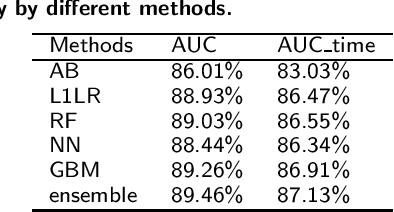

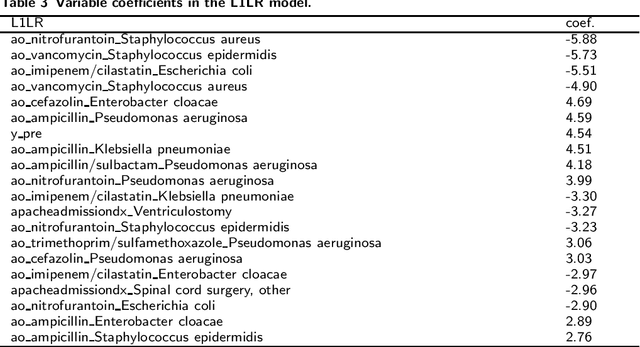
Abstract:Antimicrobial resistance (AMR) is a risk for patients and a burden for the healthcare system. However, AMR assays typically take several days. This study develops predictive models for AMR based on easily available clinical and microbiological predictors, including patient demographics, hospital stay data, diagnoses, clinical features, and microbiological/antimicrobial characteristics and compares those models to a naive antibiogram based model using only microbiological/antimicrobial characteristics. The ability to predict the resistance accurately prior to culturing could inform clinical decision-making and shorten time to action. The machine learning algorithms employed here show improved classification performance (area under the receiver operating characteristic curve 0.88-0.89) versus the naive model (area under the receiver operating characteristic curve 0.86) for 6 organisms and 10 antibiotics using the Philips eICU Research Institute (eRI) database. This method can help guide antimicrobial treatment, with the objective of improving patient outcomes and reducing the usage of unnecessary or ineffective antibiotics.
Min-similarity association rules for identifying past comorbidities of recurrent ED and inpatient patients
Oct 26, 2021
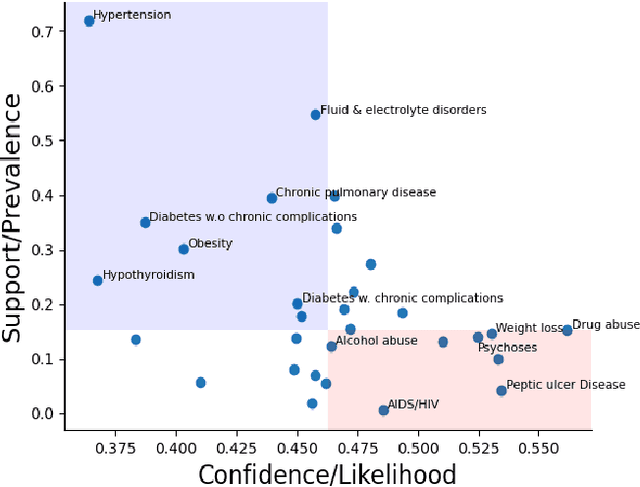
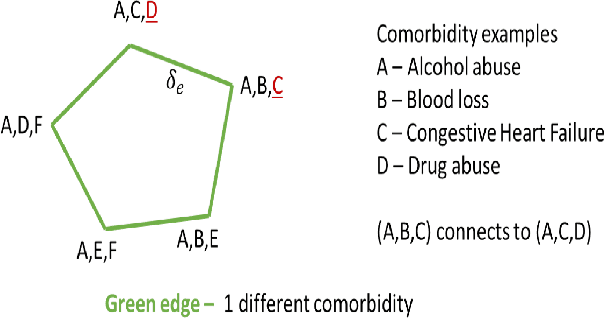
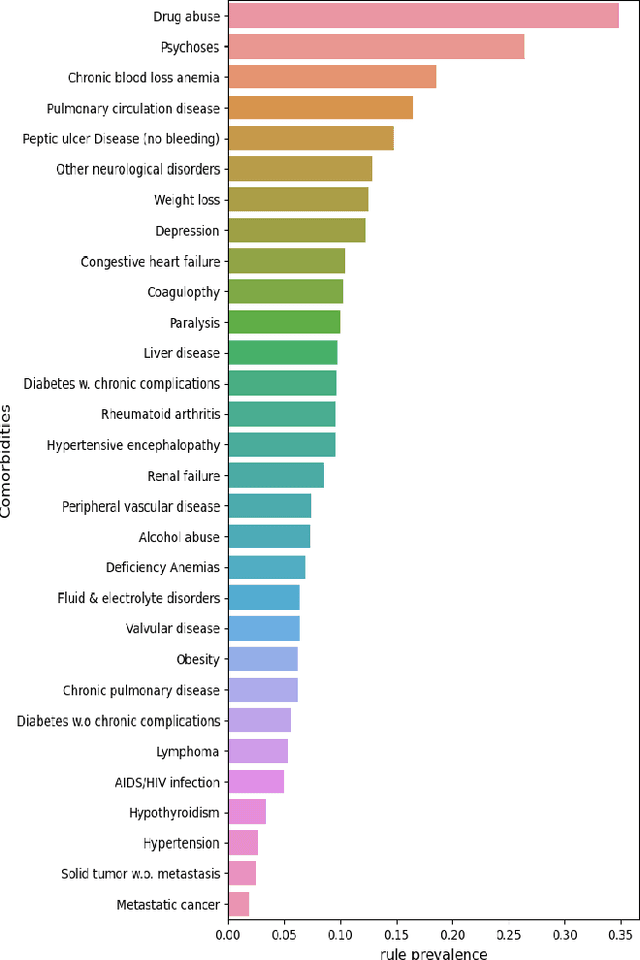
Abstract:In the hospital setting, a small percentage of recurrent frequent patients contribute to a disproportional amount of healthcare resource usage. Moreover, in many of these cases, patient outcomes can be greatly improved by reducing reoccurring visits, especially when they are associated with substance abuse, mental health, and medical factors that could be improved by social-behavioral interventions, outpatient or preventative care. To address this, we developed a computationally efficient and interpretable framework that both identifies recurrent patients with high utilization and determines which comorbidities contribute most to their recurrent visits. Specifically, we present a novel algorithm, called the minimum similarity association rules (MSAR), balancing confidence-support trade-off, to determine the conditions most associated with reoccurring Emergency department (ED) and inpatient visits. We validate MSAR on a large Electric Health Record (EHR) dataset. Part of the solution is deployed in Philips product Patient Flow Capacity Suite (PFCS).
 Add to Chrome
Add to Chrome Add to Firefox
Add to Firefox Add to Edge
Add to Edge